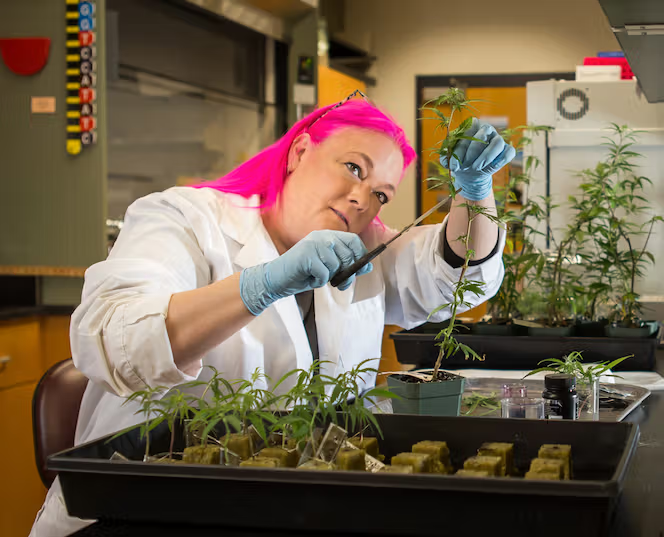The cannabis industry in Nevada faces economic challenges, prompting the University of Nevada, Las Vegas (UNLV) to establish the Cannabis Policy Institute (CPI). In its second year, the CPI aims to address the complexities of cannabis legalization through research, policy development, and education.
Riana Durrett, the CPI’s executive director, emphasizes the need for informed policies as recreational cannabis remains legal at the state level. Durrett, who has extensive experience as a practicing attorney and in cannabis regulation, has led the CPI to produce numerous reports analyzing the cannabis economy. The state recorded approximately $1 billion in cannabis revenue in 2021, generating around $100 million in taxes. However, recent trends indicate a decline in revenue, attributed to high tax rates, regulatory hurdles, and competition from the illegal market.
“When I first entered the industry, optimism was high,” Durrett noted. “But now, only about a quarter of cannabis businesses are profitable, which is proving more challenging than anticipated.”
The CPI’s recommendations have prompted state-level discussions, including proposals for expanding cannabis delivery services beyond private residences. Durrett warns that limiting access can fuel unlicensed sales, stating, “If legal markets do not meet demand, illegal sales will fill that gap. For Nevada to make a difference, changes are necessary.”
Located in Las Vegas, a major tourist hub, the CPI seeks to influence cannabis policy in relation to tourism, commerce, and economic growth. The institute recently hosted a national symposium during MJBizCon, the largest cannabis expo in the country, allowing it to gather diverse perspectives on policy issues, including the potential for interstate commerce.
“The cannabis industry is fragmented across states,” Durrett explained. “Legalizing interstate commerce could lead to a national market, significantly boosting economic opportunities. Without some form of national reform, generating more cannabis revenue will be difficult.”
Additionally, the CPI is revisiting the integration of cannabis and gaming industries, a topic that lost momentum in 2014 due to regulatory opposition. Durrett highlights that the rise of unlicensed cannabis sales poses risks to both sectors, suggesting that collaboration could enhance the future of both industries in Nevada.
“There is a substantial opportunity for Nevada to promote cannabis tourism and create a more dynamic future if both sectors cooperate,” Durrett stated.
Marla Royne Stafford, CPI’s director of research, emphasizes the changing consumer landscape. As more states legalize cannabis and public attitudes shift, she suggests re-evaluating old assumptions. “People seek experiences in places where certain activities are not permitted in their hometowns,” she said.
The CPI aims to analyze how cannabis and gaming could influence each other economically, an investigation that requires careful consideration. Stafford believes that Las Vegas can serve as a model for both gaming and cannabis regulations.
In addition to its research and policy focus, the CPI is committed to providing educational opportunities for students. Durrett teaches a Cannabis Law and Policy class at the William S. Boyd School of Law, which has become highly sought after. She is also developing a course on tribal cannabis law, the first of its kind in the United States.
“I find fulfillment in shaping future professionals who will drive the cannabis industry forward,” Durrett expressed. “As the landscape evolves, our influence on education and policy will only grow.”




